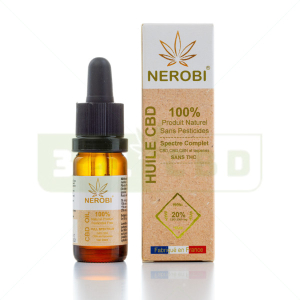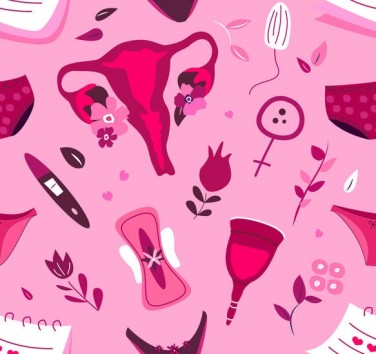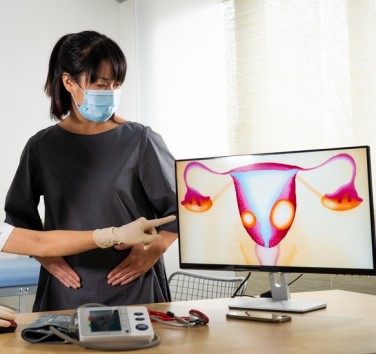What is Premenstrual Syndrome (PMS)?
Premenstrual syndrome is defined as a group of changes that affect women physically, emotionally and/or behaviorally. These changes occur 1 to 2 weeks before a woman's period starts and disappear at the beginning of or a few days after the start of the period.
What are the symptoms of PMS?
Premenstrual syndrome (PMS) has a wide variety of signs and symptoms. Mood swings, unexplained sadness, sore breasts, abdominal pain, migraines, severe fatigue, irritability and even anger and signs of depression are the most common
It is estimated that up to 3 out of 4 menstruating women have experienced and suffered from some form of PMS. These symptoms can be particularly debilitating and remain under-researched by medicine.
Other PMS symptoms
Every woman is different and experiences PMS differently. Some will experience mild symptoms while others will be completely immobilized. Other symptoms that can affect women before their period include this (non-exhaustive) list:
-
Tension or anxiety
-
Crying
-
Changes in appetite and cravings
-
Difficulty falling asleep (insomnia)
-
Social withdrawal
-
Poor concentration
-
Decreased libido
-
Joint or muscle pain
-
Unexplained pain
-
Weight gain, water retention
-
Bloating
-
Breast tenderness
-
Acne breakouts
-
Constipation or diarrhea
-
Intolerance to alcohol and certain odours
What causes PMS?
Although PMS is common, doctors are not sure what causes it. There are, however, some leads that are important contributors to the syndrome and research must move forward to determine more precisely what causes PMS.
According to medical science, PMS is caused by several factors including:
A cyclical hormone change: Indeed, PMS is subject to hormonal fluctuations secreted by the pituitary gland, hypothalamus and ovaries and disappears with pregnancy as well as menopause. We can therefore conclude that PMS is strongly linked to the hormones that play a role in menstruation.
A chemical change at the neural level: Fluctuations in serotonin, a chemical neurotransmitter in the brain, plays a crucial role in moods. It may trigger PMS symptoms. Insufficient amounts of serotonin can contribute to premenstrual depression, as well as fatigue, cravings and sleep problems.
Chemical processes in the brain change in response to different hormone levels. These two response elements are therefore linked together. The causes of PMS and the link between hormones, neurotransmitters and PMS are still being studied.
Existing treatments for PMS
There are 3 more or less effective and complementary solutions for treating PMS today.
Improve your lifestyle: Having a healthy diet, doing sports, avoiding excitants such as alcohol or cigarettes, sleeping well are among the advice given by doctors. Certain nutrients are also recommended (zinc, calcium, vitamin B6...).
Alternative medicine: Various techniques are recommended to soothe PMS symptoms. These include herbal medicine, acupuncture and homeopathy.
Medication treatment: Taking antidepressants for advanced cases of PMS may be recommended by doctors. The pill may also be recommended. Consult a doctor for more details.
In the most severe and disabling cases of PMS, it is recommended to consult a psychology professional and try cognitive behavioral therapy in order to alleviate the psychological disorders in depth.
.jpeg)
What is CBD?
Cannabidiol or CBD is one of the cannabinoids identified in cannabis. Once consumed, it acts on the body's receptors just like another better known cannabinoid, Tetrahydrocannabinol or THC. Unlike THC, CBD produces a relaxing effect but has no psychoactive effects.
CBD offers many medicinal virtues that are not negligible. It is considered to have anticonvulsant, antipsychotic, anti-inflammatory, antioxidant and antidepressant effects. In particular, it is known to have very encouraging effects on certain severe forms of epilepsy and on diseases such as multiple sclerosis, Parkinson's disease, or fibromyalgia.
In France, CBD is legal and marketed on online stores such as 321 CBD. Indeed, containing less than 0.2% THC (legal limit of THC in cannabis products in France), it has no psychotic effect and offers a beneficial experience to its users.
Side effects of CBD
The side effects of CBD are rare and depend on the individual who suffers them. Some of the effects include changes in appetite, dry mouth, dizziness and sometimes temporary headaches. If they appear, they often subside during the first few uses.
The action of CBD on PMS
CBD is a natural product that helps relieve women with mild to moderate PMS symptoms. Each woman suffers from a different PMS, so the effectiveness of CBD will depend on the type of symptoms they face each month
CBD can work on different symptoms in a very effective way. Let's see what CBD does for PMS.
The emotional state
CBD is a definite ally in regulating emotional fluctuations. Already known to relieve depressive states, CBD is a natural antidepressant. This is because CBD interacts with the body's endocannabinoid system and helps balance the important hormones and chemical messengers in the brain that exacerbate PMS on an emotional level. Further studies are needed to confirm these effects according to the environmental and social variables of the individuals involved.
Physical pain
One of the best known therapeutic benefits of CBD is its anti-inflammatory effect. Indeed, CBD is proven to be an excellent natural anti-inflammatory that relieves pain. During PMS, women suffering from cramps, contractions of the muscle lining the uterus, and various physical pains (backache, sore breasts) can benefit from these therapeutic properties to better live their cycle and their pre-cycle
How to use CBD for PMS?
The use of CBD varies from person to person, as does the management of PMS. Results and effectiveness vary depending on the person, method of administration, product composition, and dosage. Some women take CBD on an as-needed basis while others take it routinely for preventative management.
CBD Dosage for PMS
Because all women are different, the dosage of CBD for PMS varies from person to person. We recommend experimenting with dosage and dosing to find what works best for you
Keeping a diary and updating your calendar with the progression of your menstrual symptoms can help determine the best use of CBD for you, allowing you to better understand how it affects you.
What forms of CBD for PMS?
We recommend the two most common forms of CBD to relieve your premenstrual symptoms.
CBD oil A few drops under the tongue will suffice. Ideal because it acts quickly. Depending on the concentration of CBD, the oil will have a powerful and relaxing effect within 30 minutes after ingestion. More information on cBD oils on 321 CBD.
CBD infusions The infusion of cBD flowers is a popular form for women who want to relax slightly. Infused with the same technique as tea, CBD has mild and relaxing effects.
You can also use the vaporizer or edibles if those uses suit you!















